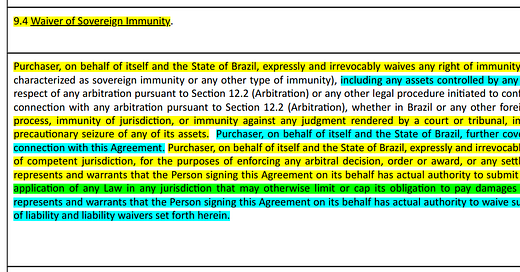
Discover more from Sense of Awareness
The Downfall of Western Civilization
What you are about to read was published exactly 100 years ago, and it frightening to see how relevant it is today as it was when it was first published.
“The liberal middle class is proud of the abolition of censorship, the last barrier, while the dictator of the press - the owner of the media! - keeps the slave crowd of his readers under the lash of his editorials, telegrams, and illustrations. Democracy has completely displaced the book from the intellectual life of the masses by the newspaper. The world of books, with its wealth of points of view, which required thought to select and criticize, is now a real possession only for narrow circles. The people read one newspaper, "their" newspaper, millions of copies of which reach every home every day, captivate the minds from the early morning, make the books forgotten by their layout, and, if one or the other does enter the circle of vision, eliminate its effect by an anticipated criticism.
What is truth? For the crowd, that which one constantly reads and hears. Its commanders create, transform, exchange truths. Three weeks of press work, and all the world has recognized the truth. … Their reasons are irrefutable as long as there is money to repeat them uninterruptedly. … The dynamics of the press want lasting effects. It must keep the spirits permanently under pressure. Its reasons are refuted as soon as the greater money power is with the counter-reasons and brings them even more frequently before all ears and eyes. At the same moment the magnetic needle of public opinion turns to the stronger pole. Everyone is immediately convinced of the new truth. One is suddenly awakened from an error.
…today there are still morons here and there who are enthusiastic about the idea of freedom of the press, but it is precisely with this that the coming Caesars of the world press have free rein. Those who have learned to read fall prey to their power, and the dreamed-of self-determination turns into the late democracy of a radical determination of the peoples by the powers that the printed word obeys.
…Without the reader noticing it, the newspaper changes hands, and with it the reader himself. … Money triumphs here too and forces the free spirits into its service. No animal tamer has his pack better under control. The people are let loose as a mass of readers, and they storm through the streets, throwing themselves at the designated target, threatening and breaking windows. A wave to the press staff and it quiets down and goes home. The press today is an army with carefully organized branches of arms, with journalists as officers, readers as soldiers. But it is here as in any army: the soldier obeys blindly, and the changes in war aims and plan of operations take place without his knowledge. The reader knows nothing of what is being done to him, nor is he supposed to, nor is he supposed to know what part he is playing in it. There is no more terrible satire on freedom of thought. Once one was not allowed to dare to think freely; now one may, but one can no longer. One only wants to think what one is supposed to want, and that is what one perceives as one's freedom.
And the other side of this late freedom: everyone is allowed to say what he wants; but the press is free to take note of it or not. It can condemn to death any "truth" by not assuming its communication to the world, a terrible censorship of silence, all the more omnipotent because the slave mass of newspaper readers do not even notice its existence. … The time of the "book" is framed by the Gothic sermon and the modern newspaper. Books are a personal expression, sermon and newspaper obey an impersonal purpose.
The dictatorship of the party leaders is based on the dictatorship of the press. Through money, one tries to snatch away multitudes of readers and whole peoples from the enemy's bondage and to bring them under one's own thought discipline. Here they learn only what they are supposed to know, and a higher will shapes the image of their world. One no longer needs, like the princes of the baroque, to oblige the subjects to serve in arms. One whips up their spirits, by articles, telegrams, pictures - the owner of the media! - until they demand arms and force their leaders to fight in the way the latter wanted to be forced to fight.
That is the end of democracy. If in the world of truths proof decides everything, so in the world of facts success. … The thinking and thereby the acting of the masses is kept under iron pressure. Therefore, and only therefore, one is a reader and voter, that is, in double slavery, while the parties become obedient allegiances of the few. … Like English royalty in the 19th century, parliaments in the 20th are slowly becoming a solemn and empty spectacle. As there was the ruler’s stick and the crown, so here the people's rights are carried before the crowd with great ceremonial and are respected all the more embarrassingly the less they mean. … Money organizes the process in the interest of those who possess it, [Here lies the secret why all radical, that is, poor parties necessarily become the tools of the money powers, in Rome the equites, today the stock exchange. Theoretically they attack the capital, but practically not the stock exchange, but in its interest the tradition, … Half of the mass leaders are to be bought by money, offices, participation in business, and with them the whole party].
Through money democracy destroys itself, after money has destroyed the spirit. But precisely because all dreams have vanished that reality could ever be improved by the thoughts of some Zeno or Marx, and one has learned that in the realm of reality one will to power can only be overthrown by another...”
The above was a direct translation from the original German version of “The Decline of the West, volume II”, which was written by Oswald Spengler, and published in 1922.
I kept the paragraphs structure as it appears in the original version, and for the sake of visibility I did not used italic font. The only thing I replaced in the text was the word Northcliffe with “the owner of the media”, as it was a reference to Alfred Charles William Harmsworth, 1st Viscount Northcliffe, which was a British newspaper and publishing magnate.
Ehden
Subscribe to Sense of Awareness
The truth shall set you free...










"In individuals, insanity is rare; but in groups, parties, nations and epochs, it is the rule." ― Friedrich Nietzsche
“Through money democracy destroys itself”
Well, through the *love* of money, the all-consuming pursuit of money, the occlusion by lust for money of higher ideals and more noble aspirations.